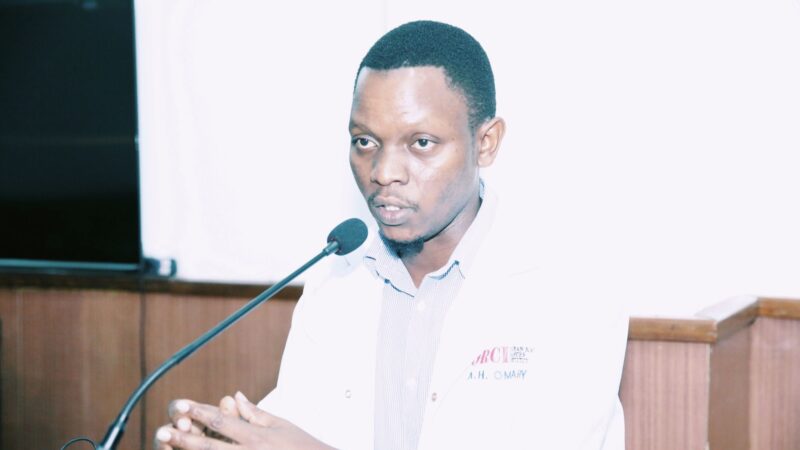Abubakari Hassan, Clinical Radiotherapist at Ocean Road Cancer Institute, shared a post on LinkedIn:
“Delighted to have defended my thesis titled Economic burden related to the breast cancer treatment at the tertiary hospital in Tanzania, a perspective of patients.
Study summary:
Breast cancer diagnosis and treatment impose a substantial economic burden on patients and their families in Tanzania, regardless of insurance status. The study highlights the significant direct medical, non-medical, and indirect costs. Non-medical and indirect costs are often overlooked in clinical debates and policy discussions in our existing healthcare landscape.
Breast Cancer situation at a glance:
Breast cancer is the second leading cancer among women in Tanzania, a situation which is congruent to the current global cancer trends. The mortality rate due to breast cancer in Tanzania is approximately 9.7 per 100,000 women, emphasizing the urgent need for robust and effective approaches in prevention, diagnosis, and resilient and sustainable treatment strategies.
Crucial findings:
Both insured and non-insured patients face significant direct non-medical costs, including transportation, food and lodging expenses, and indirect costs (loss of productivity).
Uninsured and partially insured patients are more likely to incur catastrophic health expenditures due to out-of-pocket payments for medical services, leading to irreversible long-term poverty.
Out-of-pocket expenses push individuals to employ financial coping mechanisms like valuable domestic assets liquidation and loans taken from non-financial institutions, which are common among patients diagnosed with breast cancer, an approach which is essentially classified as a regressive form of healthcare financing.
A substantial number of patients delay or abscond from treatment due to financial constraints, impending optimum treatment outcomes.
Distance to health facilities and sickness duration were also identified as statistically significant cost drivers, highlighting the acute and pressing need for accessible and efficient specialized cancer care services.
Recommendations:
Universal Health Insurance: Promoting and implementing universal health insurance will reduce financial barriers to breast cancer, as diseases (cancer) are unpredictable.
Decentralization of Oncological Services: The Government should decentralize specialized oncological services at least to zonals and related onco-ecosystems to increase access to care and reduce costs associated with distance and travel among patients and families.
Early Detection and Diagnosis: Promoting early detection and diagnosis through public awareness campaigns and public education.
Subsidies for Medicines and Medical Equipment: Providing subsidies for essential medicines and medical equipment will simultaneously reduce the financial burden on patients.”

You can find more posts featuring Cancer Care in Africa on OncoDaily.


